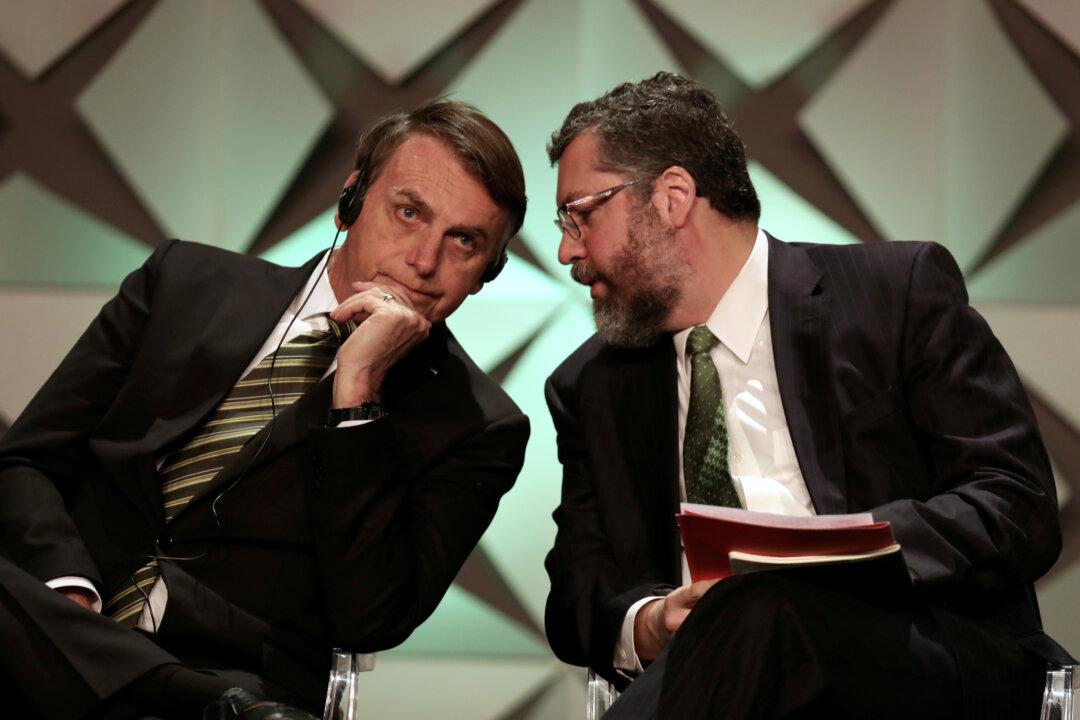Brazilian President Jair Bolsonaro made six Cabinet changes on Monday in the biggest ministerial reshuffle since he took office.
Three ministers left the government, including Foreign Minister Ernesto Araujo, a China hawk whose departure followed mounting criticism from lawmakers of his failure to guarantee additional COVID-19 vaccine supplies from Beijing and Washington.





